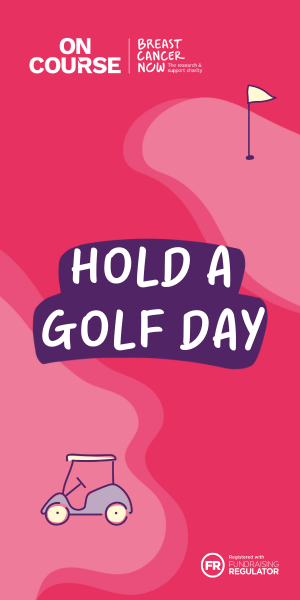As part of Women & Girls Golf Week, we had the privilege of speaking with Lysa Jones, former LET player and England Golf Coach of the Year.
Lysa Jones is a force to be reckoned with in the golf industry. Former LET player, coach to the England U18 boys’ team and winner of the England Golf Coach of the Year award, her career has been impressive, to say the least. As the only female coach to work for England Golf and one of the very few elite female coaches in the world, she’s a trailblazer in the golf industry, smashing stereotypes and glass ceilings for fun.
But it’s her genuine passion for what she does and unwavering need to keep learning that makes Lysa so inspiring and a role model for so many.
And it’s why, when Lysa agreed to chat with me between lessons this week, I couldn’t wait to speak to her.
As a female PGA coach, can you share your journey and experiences in breaking barriers in a traditionally male-dominated industry?
My journey into golf was a bit unexpected. I initially had no interest in the sport, but with encouragement from my dad, I gave it a shot.
Three years after my first lesson I won the English Girls Championship and that’s what sparked my decision to pursue a career in golf.
After qualifying with the PGA in 1999 and playing on the WPGA circuit, I got my card on the LET after my second attempt at qualification. This gave me category 11 status which meant that I could be a reserve for LET events. This is something I didn't pursue but I did play a few LET events which I qualified for through WPGA tournaments.
Then fate led me to Graham Walker's Golf Academy, where I learned from an incredible mentor. And 20 years on, we’re still working together, now at The Oaks, near York.
I've always had a vision of being a county and England coach, and I'm proud to say I've achieved that. I’ve been the England U18 boys’ coach for just over 10 years and have been fortunate to work with some incredible players in the almost 25 years that I’ve been teaching.
Throughout my career, I've always been supported by coaches and players, and I've experienced very little negativity as a female in the industry. When it comes to barriers, I’ve always just let my ability speak for itself. A good player or good coach is a good player or good coach whether you’re a male or a female.
How has your unique perspective influenced your coaching style and approach?
Being a former player myself, I understand the holistic nature of the game. It's not just about swing mechanics, but also strategy, mental fortitude, and physical strength.
I treat each player as an individual, understanding their unique needs.
I'm also a perpetual learner, attending seminars and seeking insights from the best coaches in the world. This curiosity drives me to continuously evolve as a coach. I love learning and improving.
Mentorship plays a crucial role in shaping young golfers' careers. Could you share a story about a talented golfer you've mentored and the impact your guidance had on their development, both on and off the course?
One standout story is about a young girl named Elise. She joined me with aspirations to play for England at the age of 12. Despite starting with a handicap of 20, we worked on her technical skills while focusing on her mental game and strategy.
Over six years, she progressed to representing England. During the pandemic, I ensured her engagement through Zoom lessons and even creative practices like pitching to her dad in a field.
Empowerment is key to fostering growth and confidence in young golfers. How do you create an inclusive and supportive environment for your students, irrespective of their gender, to help them reach their full potential?
The environment I've cultivated at The Oaks is centred around making every individual feel important. I believe in giving each lesson my all, just as I would want as a student.
And my coaching goes beyond technique; I care about each player as a person and every lesson is tailored to the player's needs. I'm not just a technical coach, but also a mental coach and counsellor. And when a player feels supported – really and truly supported – that’s when you get the most out of them. That’s how they reach their full potential.
It’s also important to continue that support away from the range or the course. I check in on players’ progress, analyse their stats, and generally offer support.
It's about understanding the whole person and helping them flourish.
In a sport where representation of female coaches is relatively low, how do you believe increased diversity in coaching can benefit the sport?
More women coaches will undoubtedly benefit golf. Diversity brings fresh perspectives, ideas, and experiences that can elevate the sport for everyone involved.
And we need more women coaches as role models.
Role models play a pivotal role in shaping careers. My own experience, coming out of my shell and gaining confidence through golf, speaks to this.
I had an excellent female county coach as a junior and there’s no doubt that she’s helped to shape my career and who I am as a coach. She was one of my first role models in the game and was one of the people who inspired me actually to get into coaching.
I was always so shy and reserved when I was younger – I didn’t even like saying hello to anyone! But golf has taught me so much about myself – it still is teaching me.
As a trailblazer in the field, what advice would you give to aspiring female golf coaches?
First, invest in yourself. Spend time with the best coaches and learn from them. Then, never stop learning! Always be curious.
It’s also crucial to understand the game inside out and be able to demonstrate shots yourself.
And finally, Advocate for yourself, especially as a woman in a male-dominated sport. Believe in your abilities and never underestimate the impact you can have on players' lives.
Catch up with more of our Women & Girls Golf Week features, like our interview with Alice Cox-Cooper who tells us more about finding herself on the other side of the golfing coin. Read it now >















